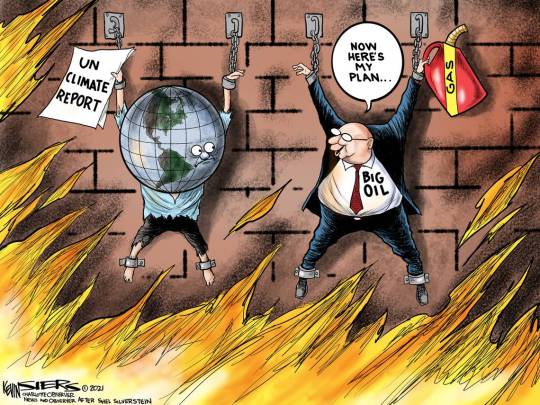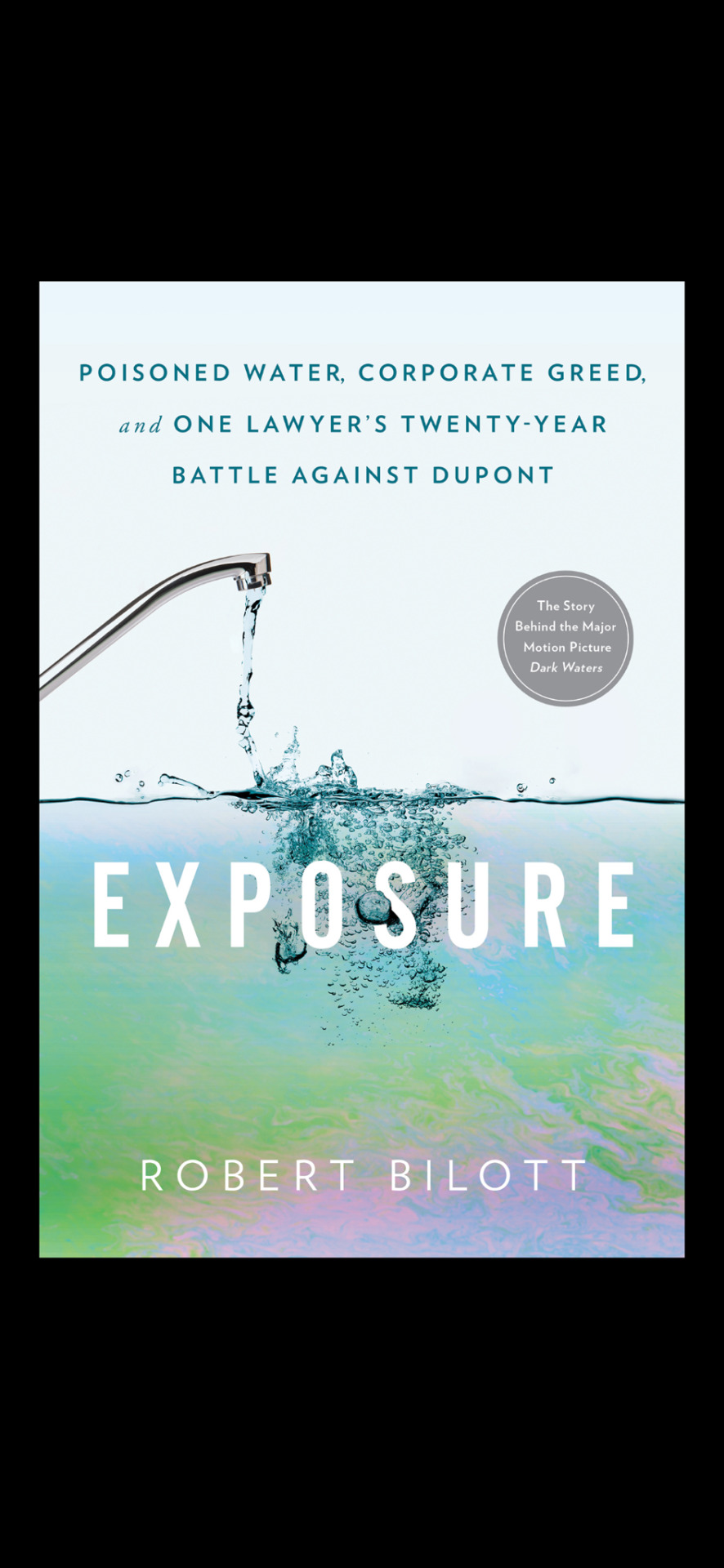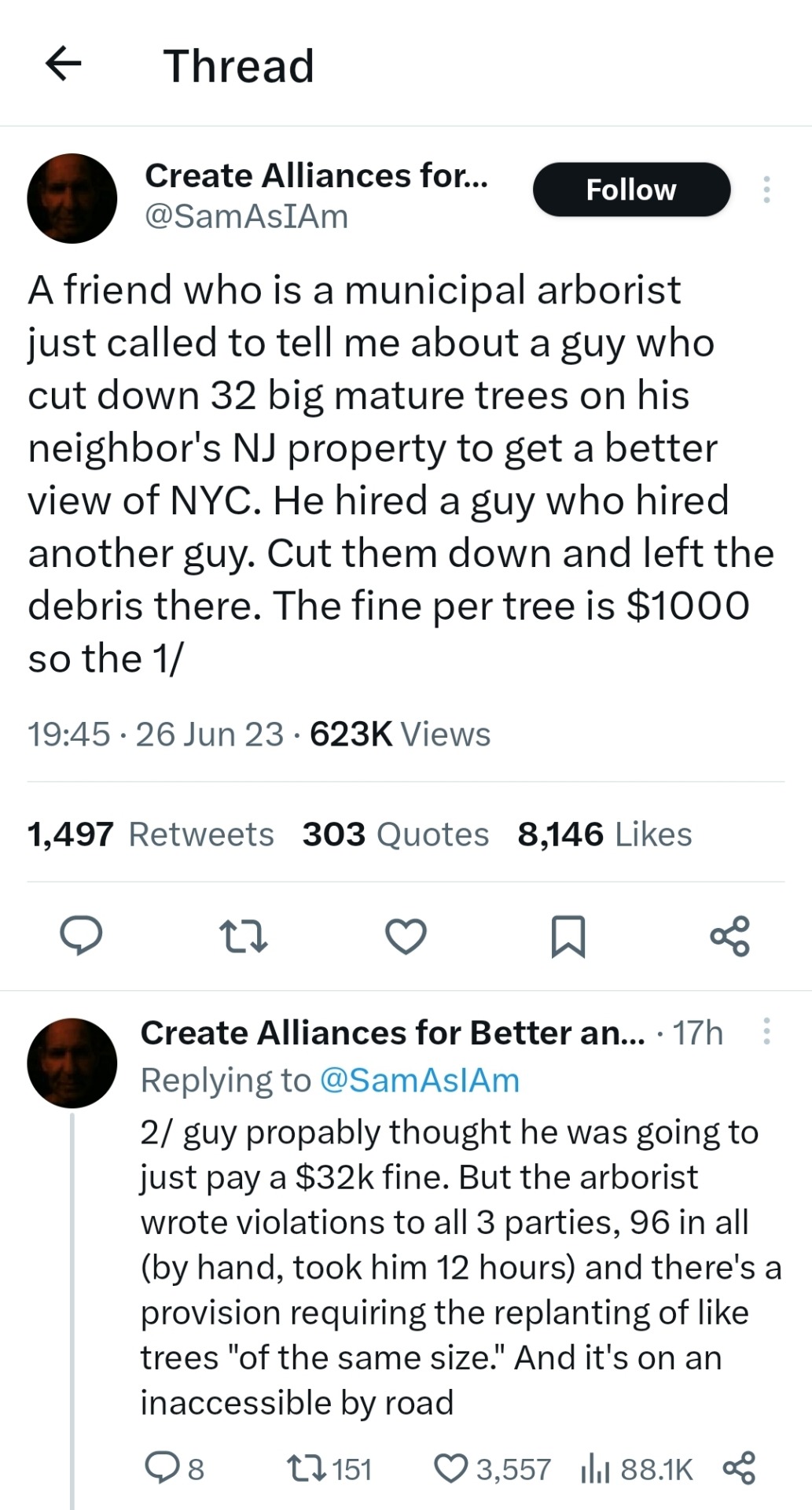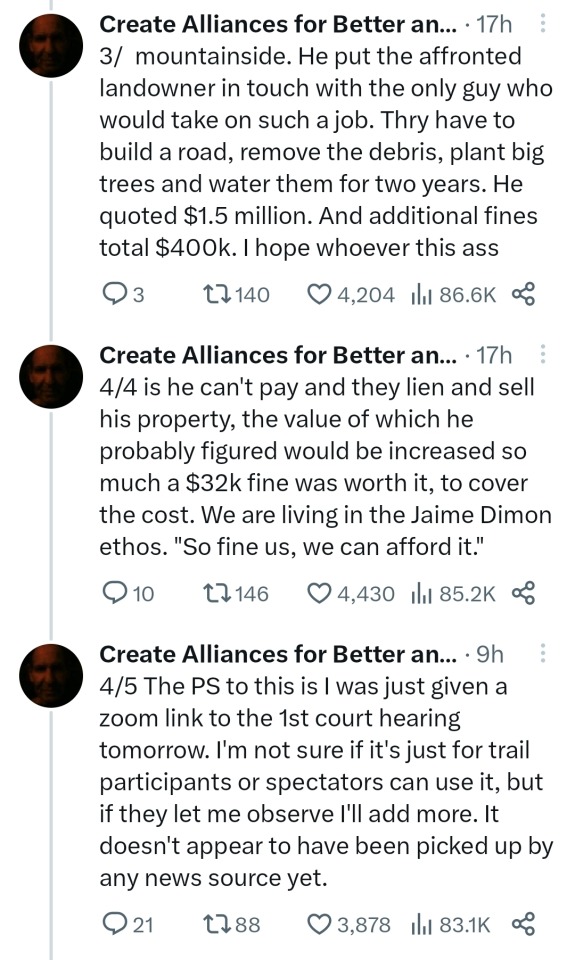#environmental law
Text
An illegal toxic dump site in Croatia, the theft of water from a major aquifer in southern Spain, illegal trading of ozone-depleting refrigerants in France: This is just a sampling of the environmental crimes that European countries are struggling to stop. The lack of accountability for these acts stems in part from the European Union’s legal code, which experts say is riddled with vague definitions and gaps in enforcement. That’s about to change.
Last week, EU lawmakers voted in a new directive that criminalizes cases of environmental damage “comparable to ecocide,” a term broadly defined as the severe, widespread, and long-term destruction of the natural world. Advocates called the move “revolutionary,” both because it sets strict penalties for violators, including up to a decade in jail, and because it marks the first time that an international body has created a legal pathway for the prosecution of ecocide.
“This decision marks the end of impunity for environmental criminals and could usher in a new age of environmental litigation in Europe,” wrote Marie Toussaint, a French lawyer and EU parliamentarian for the Greens/European Free Alliance group, on X...
The new directive uses the term “ecocide” in its preamble, but does not criminalize the act by laying out a legal definition (the most widely accepted definition of ecocide was developed by an international panel of experts in 2021). Instead, it works by providing a list of “qualified offenses,” or crimes that fall within its purview. These include pollution from ships, the introduction of invasive species, and ozone depletion...
The new law holds people liable for environmental destruction if they acted with knowledge of the damage their actions would cause. This aspect of the law is important, experts said, because it means that a permit is no longer enough for a company to avoid culpability.
“If new information shows that behavior is causing irreversible damage to health and nature – you will have to stop,” a member of the European Parliament from the Netherlands, Antonius Manders, told Euronews.
Advocates like Mehta hope that the EU’s move will have influence beyond Europe’s borders. The principal goal of the Stop Ecocide campaign is for the International Criminal Court to designate ecocide as the fifth international crime that it prosecutes, after crimes against humanity, war crimes, crimes of aggression, and genocide. At the moment, environmental destruction can only be prosecuted as a war crime at the ICC, and limitations in the law make this extremely difficult to do...
Kate Mackintosh, the executive director of the Netherlands-based UCLA Law Promise Institute Europe, told Grist that the ICC is unlikely to adopt an ecocide law if other countries do not do so first.
“It’s not something you can just pull out of thin air,” she said, adding that any international legal doctrine has to have a precedent on the national level. “That’s the way states are going to accept it.”
The EU’s 27 member states will have two years to adapt the new legislation into their penal codes. Afterwards, their implementation must be reviewed and updated at least once every five years using a “risk-analysis based approach,” to account for advancements in experts’ understanding of what might constitute an environmental crime. Mehta said that despite its omission of some important offenses, the law sets an important example for other countries. Several days before the EU vote, Belgium adapted its criminal code to include the directive, making it the first country in Europe to recognize ecocide as a crime.
The ruling “shows leadership and compassion,” Mehta said. “It will establish a clear moral as well as legal ‘red line’, creating an essential steer for European industry leaders and policy-makers going forward.”
-via Grist, March 6, 2024
#climate change#climate crisis#climate catastrophe#climate action#eu#european union#icc#international criminal court#belgium#europe#environment#environmental law#environmental news#ecocide#good news#hope#hope posting
725 notes
·
View notes
Text
—
“the U.S. Supreme Court rejected the State of Alaska’s bid to fast-track the legal process, overrule the Environmental Protection Agency (EPA), and gain approval for the Pebble Mine — slated to extract enormous amounts of copper, gold, and molybdenum from the pristine and sensitive ecosystem known as Bristol Bay.
A diverse coalition led by Alaska Natives has consistently fought against the proposed mine for more than two decades. It eventually gained support from the EPA, which ultimately blocked the mine proposal in January 2023 over concerns it would threaten an aquatic ecosystem supporting the world’s most prolific sockeye salmon fishery.
This decision is significant, particularly considering the current High Court’s tendency to support states’ rights, limits on regulation — especially of the environmental variety — and corporate concerns. Alaska’s request, filed in June, was unusual in that it sought to skip lower appeals courts to challenge the EPA’s decision on the basis that it violated Alaska’s state sovereignty.
Under the law, alleged violations of state sovereignty are one of the few categories of cases that grant the Supreme Court original jurisdiction — meaning a state can bypass the usual state/federal court appeals process and file straight with the High Court. The justices could easily have decided to hear the case and decide in favor of the mining company, which has shown no qualms about engaging in some shady business practices over the years.
As the single most productive sockeye salmon fishery in the world, Bristol Bay contains biodiversity and abundant wild fish populations which present a stark contrast to many other fisheries in the Pacific Northwest (and worldwide). Most have experienced severe depletion over the last few decades. Sockeye salmon — like all Pacific Salmon — are a keystone species, vital to the health of an entire ecosystem. Of course, salmon also provide a sacred food source for Indigenous communities up and down the West Coast.”
-from the Lakota People’s Law Project
#good news#environmentalism#nature#environment#environmental law#environmental justice#indigenous activism#conservation#fish#salmon#usa#alaska#alaska natives
378 notes
·
View notes
Photo

I had such a fun time studying with a view. This is in Kothagiri, a small town in the Nilgiris of Southern India.
#mountains#light academia#studying with a view#workation#books#studyblr#academia#law student#environmental law#sticky notes#my notes#notes#study notes#tea#Indian History#india#south india#tea estate
524 notes
·
View notes
Note
What made you want to be a lawyer
Dear anon, you would like my villain (lawyer) origin story?? I am so flattered!
It was all about the Roadless Rule! (Scroll down to the “Political conflict in the U.S.” section.)
My grandfather was a lawyer and I wanted to be a lawyer at various points as a kid, but the Roadless Rule is what actually made me start studying for the LSAT.
You see, one of the last things Bill Clinton did in office was to enact the Roadless Area Conservation Act which, as the name implies, disallowed the building of roads in national forests and grasslands.
So Clinton is out and the George W. Bush administration is in and they try to figure out how to undo the Roadless Rule. But for reasons I don’t remember because it was 20 years ago, they couldn’t or didn’t want to just repeal it and so they did a complicated change to it, which basically gutted it.
Enter young Miro, who was a starry-eyed college student at the time (yes, I’m old) interning for a small environmental NGO. My boss at the NGO told me to write up newsletter article for our members about this Roadless Rule change so I tried to read the thing and… I just did not fucking understand it. It was chock-full of bureaucratic legalese and I was completely lost. So I went and found an article that an attorney had written that broke down the impact of the change in plain English.
And because the thought of people using bureaucratic legalese to hurt the environment in ways I couldn’t even understand made me really fucking mad, I decided to go to law school so at least I could understand what the fuckers were doing.
So yeah, 14 years into my legal career, most of it spent doing some sort of environmental law, I mostly understand what the fuckers are doing and I feel like I’ve done a bit of good in the other direction.
Thanks for asking, anon! The ask box is open for other random anon (or not anon) asks!
24 notes
·
View notes
Text

LETTERS FROM AN AMERICAN
December 27, 2023
HEATHER COX RICHARDSON
DEC 28, 2023
Fifty years ago tomorrow, on December 28, 1973, President Richard Nixon signed the Endangered Species Act into law. Declaring that Congress had determined that “various species of fish, wildlife, and plants in the United States have been rendered extinct as a consequence of economic growth and development untempered by adequate concern and conservation,” the act provided for the protection of endangered species.
Just over a decade before, in 1962, ecologist Rachel Carson had published Silent Spring, documenting how pesticides designed to eliminate insects were devastating entire ecosystems of linked organisms. The realization that human destruction of the natural world could make the planet uninhabitable spurred Congress in 1970 to create the Environmental Protection Agency. And in 1973, when Nixon called for stronger laws to protect species in danger of extinction, 194 Democrats and 160 Republicans in the House—99% of those voting—voted yes. Only four Republicans in the House voted no.
Such strong congressional support for protecting the environment signaled that a new era was at hand. While President Gerald Ford, who succeeded Nixon, tended to dial back environmental protections when he could in order to promote the development of oil and gas resources, President Jimmy Carter pressed the protection of the environment when he took office in 1977.
In 1978, Carter placed 56 million acres of land in Alaska under federal protection as national monuments, doubling the size of the national park system. “These areas contain resources of unequaled scientific, historic and cultural value, and include some of the most spectacular scenery and wildlife in the world,” he said. In 1979 he had 32 solar panels installed at the White House to help heat the water for the building and demonstrate that it was possible to curb U.S. dependence on fossil fuels. Just before he left office, Carter signed into law the Alaska National Interest Lands Conservation Act, protecting more than 100 million acres in Alaska, including additional protections for the Arctic National Wildlife Refuge.
Oil companies, mining companies, timber companies, the cattle industry, and local officials eager for development strongly opposed Carter’s moves to protect the environment. In Alaska, local activists deliberately broke the regulations in the newly protected places, portraying Carter as King George III—against whom the American colonists revolted in 1776—and insisting that the protection of lands violated the promise of life, liberty, and the pursuit of happiness promised in the Declaration of Independence.
For the most part, though, opposition to federal protection of the environment showed up as a drive to reform government regulations that, opponents argued, gave far too much power to unelected bureaucrats. In environmental regulations, the federal government’s protection of the public good ran smack into economic development.
In their 1980 presidential platform, Republicans claimed to be committed to “the conservation and wise management of America’s renewable natural resources” and said the government must protect public health. But they were not convinced that current laws and regulations provided benefits that justified their costs. “Too often,” they said, “current regulations are…rigid and narrow,” and they “strongly affirm[ed] that environmental protection must not become a cover for a ‘no-growth’ policy and a shrinking economy.”
In his acceptance speech for the Republican presidential nomination, Ronald Reagan explained that he wanted to see the U.S. produce more energy to fuel “growth and productivity. Large amounts of oil and natural gas lay beneath our land and off our shores, untouched because the present Administration seems to believe the American people would rather see more regulation, taxes and controls than more energy.”
In his farewell address after voters elected Reagan, Carter urged Americans to “protect the quality of this world within which we live…. There are real and growing dangers to our simple and our most precious possessions: the air we breathe, the water we drink, and the land which sustains us,” he warned. “The rapid depletion of irreplaceable minerals, the erosion of topsoil, the destruction of beauty, the blight of pollution, the demands of increasing billions of people, all combine to create problems which are easy to observe and predict, but difficult to resolve. If we do not act, the world of the year 2000 will be much less able to sustain life than it is now.”
“But,” Carter added, “[a]cknowledging the physical realities of our planet does not mean a dismal future of endless sacrifice. In fact, acknowledging these realities is the first step in dealing with them. We can meet the resource problems of the world—water, food, minerals, farmlands, forests, overpopulation, pollution if we tackle them with courage and foresight.”
Reagan began by appointing pro-industry officials James G. Watt and Anne M. Gorsuch (mother of Supreme Court justice Neil Gorsuch) as secretary of the interior and administrator of the Environmental Protection Agency, respectively; they set out to gut government regulation of the environment by slashing budgets and firing staff. But both resigned under scandal in 1983, and their replacements satisfied neither those who wanted to return to the practices of the Carter years nor those who wanted to get rid of those practices altogether.
Still, with their focus on developing oil and gas, when workers repairing the White House roof removed the solar panels in 1986, Reagan administration officials declined to reinstall them.
Forty years later, we are reaping the fruits of that shift away from the atmosphere that gave us the Endangered Species Act and toward a focus on developing fossil fuels. On November 30 the World Meteorological Organization (WMO), an agency of the United Nations, reported that global temperatures in 2023 were at record highs both on land and in the seas, Antarctic sea ice extent is at a record low, and devastating fires, floods, outbreaks of disease, and searing heat waves have pounded human communities this year.
The WMO released this provisional report the same day that the U.N. Climate Change negotiations, known as COP28, began in the United Arab Emirates. United Nations Secretary-General António Guterres urged leaders to commit to act to address climate change, while there was still time to avoid “the worst of climate chaos.” After a year in which countries staggered under extreme weather events, climate change is on people’s minds: nearly 80,000 people, including world leaders and celebrities, registered to attend COP28.
After the convention ended on December 13, Umair Irfan of Vox summarized the agreement hashed out there. For the first time in 27 such conventions, countries explicitly called for the phasing out of fossil fuel…but they didn’t say when or by how much. After taking stock of what countries are doing to address climate change, the meeting concluded that efforts to reduce emissions, invest in technology, adapt to warming, and help suffering countries are all falling short.
In addition to acknowledging the need to move away from fossil fuels, COP28 agreed to cut methane, boost renewable energy considerably, and help countries that are dealing with the fallout from climate change: island nations, for example. But emissions of greenhouse gases continue to rise, and the hope of limiting warmer temperatures to 1.5 degrees Celsius now seems a long shot. Still, renewable energy capacity grew nearly 10% in 2022, led by solar and wind power.
Today President Joe Biden used the anniversary of the Endangered Species Act to reclaim the spirit of the era in which it was written, urging Americans to protect ecosystems and biodiversity, “honor all the progress we have made toward protecting endangered species,” and to “come together to conserve our planet.” He noted that thanks to the Inflation Reduction Act, the Biden-Harris administration has been able to invest billions of dollars in forest management, ecosystem restoration, and protection of watersheds, as well as making historic investments in addressing climate change, and that, as president, he has protected more lands and waters than any president since John F. Kennedy.
And yet the forces that undermined that spirit are still at work. In the 2022 West Virginia v. Environmental Protection Agency decision, the Supreme Court claimed that Congress could not delegate “major questions” to executive agencies, thus limiting the EPA’s ability to regulate the emissions that create climate change; and House Republicans this summer held a hearing on “the destructive cost of the Endangered Species Act,” claiming that it “has been misused and misapplied for the past 50 years” with “disastrous effects on local economies and businesses throughout the United States.” Chair of the House Committee on Natural Resources Bruce Westerman (R-AR) accused the Biden administration of stifling “everything from forest management to future energy production through burdensome ESA regulations.”
While in 1980 voters could react to such a contrast between the parties’ environmental visions ideologically, in 2023, reality itself is weighing in. Brady Dennis of the Washington Post noted today that in this era of rising waters and epic storms, North Carolina has become the fourth state, along with South Carolina, New York, and New Jersey, to require home sellers to disclose their home’s flooding history and flood risk to prospective buyers.
LETTERS FROM AN AMERICAN
HEATHER COX RICHARDSON
#environmentalist#environmental law#climate change#climate emergency#Letters From An American#Heather Cox Richardson#Endangered Species Act#EPA#Environmental Protection Agency#history
11 notes
·
View notes
Text

If you’re ever wondering WHY it takes SO LONG for anything to get done with regulations and science, please read this book. It’s absolutely riveting, and chronicals a battle that happened in the background of the rest of our lives. Know that work is being done, and it’s hard work that takes a lot of time, effort, and money. Know that we shouldn’t give up anyways, because even when things are codified into law, we still may have to fight for them.
#environmental activism#environmentalism#enviromental#environmental justice#environmental law#environmental science
4 notes
·
View notes
Text
i wanna ask the shein influencers who stomp their feet and soullessly regurgitate, “individuals aren’t responsible for the actions of corporations!1!!” when they receive criticism online if they realize
a) how supply and demand works
b) that retailers like roles, shein, etc. are corporations that they are actively choosing to support and promote
and c) if they’ve signed any petitions, attended any protests, donated to environmental organizations, or voted in politicians who support greener policies (you know, things that individuals CAN do to mitigate the environmental destruction that companies and corporations cause)
because i feel like the venn diagram of people who fall into the first category and those who answer yes are just two completely separate circles
#environmetalists#environment#climate change#climate solutions#enviromental#activism#climate crisis#fast fashion#anti fast fashion#anti shein#anti capitalism#shein#green energy#democrats#democracy#environmental law#public policy#policy change#social justice#social media#social issues
36 notes
·
View notes
Link
UNITED NATIONS, United States - After years of talks, United Nations’ member states finally agreed to a text on the first international treaty to protect the high seas, a fragile and vital treasure that covers nearly half the planet.
“The ship has reached the shore,” conference chair Rena Lee announced at the UN headquarters in New York shortly before 9.30pm on Saturday local time, to applause from delegates.
Mrs Rena Lee is Singapore’s Ambassador for Oceans and Law of the Sea Issues and Special Envoy of the Minister for Foreign Affairs.
After more than 15 years of discussions, including four years of formal talks, the third so-called final negotiating session in less than a year heralded the long-awaited consensus.
The treaty is seen as essential to conserving 30 per cent of the world’s land and ocean by 2030, as agreed by world governments in a historic accord signed in Montreal in December.
Following two weeks of intense talks at the UN headquarters in New York, including a marathon overnight session Friday into Saturday, delegates finalised a text that cannot be significantly altered.
“There will be no reopening or discussions of substance,” Mrs Lee told negotiators.
The agreement will be formally adopted at a later date once it has been vetted by lawyers and translated into the United Nations’ six official languages, she announced.
In a statement on Sunday, Singapore’s Ministry of Foreign Affairs (MFA) said it welcomed the “successful and timely conclusion” of the Biodiversity Beyond National Jurisdiction (BBNJ) Agreement, which came just after the 40th anniversary of the adoption of the United Nations Convention on the Law of the Sea (Unclos) treaty in 1982.
“The success of the BBNJ Intergovernmental Conference process reaffirms the importance and relevance of Unclos and multilateral cooperation, and the United Nations in establishing and upholding a rules-based international order,” the MFA spokesman said.
The spokesman added that Mrs Lee’s leadership “enabled parties to bridge differences and arrive at an ambitious and future-proof BBNJ Agreement”.
The high seas begin at the border of countries’ exclusive economic zones, which extend up to 370km from coastlines. They thus fall under the jurisdiction of no country.
Even though the high seas comprise more than 60 per cent of the world’s oceans and nearly half the planet’s surface, they have long drawn far less attention than coastal waters and a few iconic species.
Ocean ecosystems create half the oxygen humans breathe and limit global warming by absorbing much of the carbon dioxide emitted by human activities.
But they are threatened by climate change, pollution and overfishing.
Only about one per cent of the high seas are currently protected.
When the new treaty comes into force after being formally adopted, signed and ratified by enough countries, it will allow the creation of marine protected areas in these international waters.
The treaty on the “conservation and sustainable use of marine biodiversity in areas beyond national jurisdiction” also obliges countries to conduct environmental impact assessments of proposed activities on the high seas.
A highly sensitive chapter on the sharing of potential benefits of newly discovered marine resources was one of the focal points of tensions before it was finally overcome as the scheduled talks, due to end Friday, overran by a day.
Developing countries, without the means to afford costly research, had fought not to be excluded from the expected windfall from the commercialisation of potential substances discovered in the international waters.
Eventual profits are likely from the pharmaceutical, chemical or cosmetic use of newly discovered marine substances that belong to no one.
As in other international forums, notably climate negotiations, the debate ended up being a question of ensuring equity between the poorer global South and richer North, observers noted.
In a move seen as an attempt to build trust between rich and poor countries, the European Union pledged €40 million (S$57.3 million) in New York to facilitate the ratification of the treaty and its early implementation.
The EU also announced US$860 million for research, monitoring and conservation of oceans in 2023 at the Our Ocean conference in Panama that ended on Friday.
Panama said a total of US$19 billion, including a US$6 billion commitment from the United States, was pledged at the conference to protect seas.
In 2017, the UN General Assembly adopted a resolution calling on nations to establish a high seas treaty.
It originally planned four negotiating sessions but had to pass two resolutions to ensure two additional sessions.
10 notes
·
View notes
Text
Russia’s War Against Ukraine Is Killing Dolphins in the Black Sea
Russia’s ongoing war against Ukraine has destroyed infrastructure and displaced about 5 million people from the country since last spring. The country’s conservationists have also noticed that the war is killing endangered Black Sea dolphins and harbor porpoises.
Even Twitter Can’t Kill Twitter | Letter From the Editor
Harbor porpoises and bottlenose dolphins have washed up dead on the Black…

View On WordPress
#Bottlenose dolphin#dam#Dolphin#Ecocide#Environment#Environmental justice#Environmental law#Gizmodo#Harbour porpoise#International criminal law#Jojo Mehta#Marine mammal#Pawel Goldin#Porpoise#Putin
1 note
·
View note
Text
Regina Lawyers
Hello friends my name is Howard Walters. I live in Canada. I have a friend who is a professional lawyer from Regina city. He has worked on law cases for many clients in Canada. Cases like civil litigation, environmental law, personal injury, real estate, small claims law many more. regina lawyers list may be very long but she is one that profile lawyer.

If you are also facing such problems and looking for a best lawyer, then you can also contact runyowa lawyers. I am giving the contact number on the website link here
#Regina Lawyers#regina lawyers list#civil litigation#environmental law#personal injury#real estate#small claims law
10 notes
·
View notes
Link
“1. The energy paradigm shifted
Two things happened this year that may have changed the energy paradigm forever. The first was Russia’s invasion of Ukraine, and the West’s subsequent dash to wean itself off Russian gas while ramping up renewables.
Putin’s war was “a historic turning point towards a cleaner future,” said the International Energy Agency, which for the first time predicted global demand for fossil fuels would peak in the mid-2030s due to the conflict.
2. Climate policies and litigation ramped up
Encouragingly, there were signs of progress. The US (the world’s second largest emitter after China) approved legislation to turbocharge its decarbonisation programme. Analysis suggests that it could slash US emissions by 44 per cent by 2030. The EU also set a target of reducing emissions: by 55 per cent this decade.
Climate litigation emerged as an effective tool for bringing about positive action in 2022, with high-profile wins, including a Filipino ruling that stated big polluters were ��morally and legally” liable for climate damage.
6. Lost species returned, others bounced back
Beavers, bison and pelicans were among the species identified as having bucked the trend by the Wildlife Comeback Report, published in September. Most are the subject of reintroduction programmes, including the bison, which is roaming England again for the first time in thousands of years.
Other notable success stories include the rhino’s return to Mozambique, the reported resurgence of fin whales, and the tiger clawing its way back from the abyss.
8. Land was returned to nature – and indigenous people
In California, a swathe of redwood forest was handed back to the descendants of Native American tribes; Ecuador ruled that indigenous communities must be given more autonomy over their territory; Europe removed a record number of dams, returning hundreds of rivers to their original free-flowing state; and England got its first wetland ‘super-reserve’.
Meanwhile, in Brazil, the incoming president, Luiz Inácio Lula da Silva, pledged to halt deforestation and revive the Amazon Fund, which enables rich countries to finance conservation in the Brazilian rainforest. [A promise that, as of February 2023, he is absolutely upholding.]”
And many more entries at the link!
-via Positive News, 12/20/22
#2022#year in review#good news#hope#climate#endangered species#indigenous land#land back#renewable energy#environmental law
118 notes
·
View notes
Text
#european union#good news#science#environmentalism#environment#nature#climate change#conservation#fossil fuels#methane#environmental law
66 notes
·
View notes
Text
i'm taking environmental law rn and it's a mix of "wow that's cool" and "wow we're screwd"
3 notes
·
View notes
Text




Art by u/reachling
126K notes
·
View notes
Text
Who Can Benefit from Corporate Law?
Corporate law is a multifaceted legal domain that governs the formation, operation, dissolution, and everything in between concerning corporations. It is a crucial aspect of the legal framework that shapes the conduct of businesses and protects the interests of various stakeholders. From entrepreneurs launching startups to multinational conglomerates navigating complex regulatory landscapes, corporate law impacts a wide array of entities and individuals. Let's delve into who can benefit from corporate law and how it intersects with other branches of law.
Entrepreneurs and Startups: Pioneering Ventures with Corporate Law
Entrepreneurs embarking on the journey of launching their own businesses often find themselves navigating the intricate terrain of corporate law. From choosing the appropriate legal structure—such as sole proprietorship, partnership, or corporation—to drafting articles of incorporation and bylaws, entrepreneurs rely on corporate law expertise to establish a solid foundation for their ventures. By understanding the nuances of corporate governance and compliance requirements, entrepreneurs can mitigate risks and ensure their businesses are set up for sustainable growth.

Family Businesses: Balancing Tradition and Progression with Corporate Law
Family businesses represent a unique blend of tradition, legacy, and entrepreneurship. In many cases, these enterprises span generations, passing down values and practices from one family member to another. Corporate law plays a pivotal role in preserving the continuity of family businesses by providing mechanisms for succession planning, resolving conflicts, and facilitating transitions between generations. Whether it's structuring a family-owned corporation or implementing governance mechanisms to accommodate diverging interests, corporate law offers invaluable support to family enterprises seeking to thrive in a dynamic business landscape.
Corporate Governance: Upholding Ethical Standards and Accountability
Effective corporate governance is essential for maintaining transparency, accountability, and ethical conduct within corporations. Corporate law establishes the framework for governance structures, delineating the roles and responsibilities of various stakeholders, including shareholders, directors, and officers. By enforcing compliance with regulatory requirements and promoting best practices in corporate governance, corporate law safeguards the interests of shareholders and stakeholders while fostering long-term value creation. Moreover, corporate governance mechanisms serve as safeguards against conflicts of interest, fraud, and misconduct, thereby enhancing investor confidence and market integrity.
Navigating Complex Transactions: Leveraging Corporate Law in Mergers and Acquisitions
Mergers, acquisitions, and other corporate transactions are intricate processes that require meticulous planning, negotiation, and execution. Corporate law provides the legal framework for structuring and executing these transactions, ensuring compliance with regulatory requirements and protecting the interests of all parties involved. Whether it's conducting due diligence, drafting transaction documents, or navigating regulatory approvals, corporate lawyers play a crucial role in facilitating seamless transactions and maximizing value for their clients. By leveraging their expertise in corporate law, businesses can pursue strategic growth opportunities and expand their market presence through mergers and acquisitions.
Corporate Compliance: Mitigating Risks and Ensuring Regulatory Adherence
In an increasingly complex regulatory landscape, corporate compliance has become a top priority for businesses across industries. Corporate law establishes the rules and standards governing corporate conduct, ranging from financial reporting and disclosure obligations to environmental compliance and consumer protection laws. By staying abreast of regulatory developments and implementing robust compliance programs, businesses can mitigate legal risks, uphold ethical standards, and safeguard their reputation. From small startups to multinational corporations, corporate compliance is essential for maintaining trust with stakeholders and fostering sustainable growth in today's interconnected world.
Corporate Litigation: Resolving Disputes through Legal Remedies
Despite best efforts to prevent conflicts and mitigate risks, disputes may still arise within corporations, leading to litigation and legal proceedings. Corporate law encompasses mechanisms for resolving disputes through negotiation, mediation, arbitration, or litigation, depending on the nature and severity of the conflict. Whether it's breach of contract, shareholder disputes, or allegations of corporate misconduct, corporate lawyers play a pivotal role in advocating for their clients' interests and seeking legal remedies. By leveraging their expertise in corporate law and litigation strategies, businesses can navigate complex legal proceedings and achieve favorable outcomes in disputes.
Get in Touch
Website - badavakeel.com
Mobile - 8181816266
1 note
·
View note
Text
Manifesto for a Forest-Centric Regime
The current form of law indubitably has an anthropocentric origin, which attempts to govern holistic functioning of the society. Human society is seen as being enabled by planetary components- natural resources, congruence among the atmosphere, hydrosphere, and lithosphere (let’s keep aside the tremendous tweaks in the mellifluous congruity by human society interference). The current law hierarchises human concerns within the society over the inarguably the fundamental issues looming over planetary components which are our comrades, if not our superiors. To name a few of these issues, climate crisis, biodiversity crisis, forest depletion crisis. Current law has seemingly impressive statutes to address these issues, namely Forest Conservation Act, Environmental Protection Act, Biodiversity Act. But these fringing statues are over-shadowed by the extremely lucrative, and thereby attractive areas of law, primarily corporate law and its various prongs. This law has for long won the hearts of humans because in our capitalist economy, profit maximisation, unhindered development and exploitation to the extent of no return are the lodestars and uncontested virtues. But even if we keep aside the popular areas of law, and scrutinise the fringe “pro-environment” statutes themselves, deception and opprobrium lie at the core of these statutes. An absolute co-option, pusillanimity to go against corporate interests, and bestowment of legality to morally illegal assaults and atrocities to the planet are protuberant to an impartial spectator.
Forest is not a tree plantation. A life-teeming ecosystem, fascinatingly diverse, repository of commensality, harmonious co-existence and completeness. Native species of trees, grown on their own volition and pace, are complemented by native insects, native bacteria, native animals, endemic birds, endemic herbs, endemic shrubs, supportive soil (which in itself is another platform of life), water streams (again another platform of life). Do not hierarchise these components of a forest as we have already done between human concerns and planetary concerns. Do not taint the egalitarian and self-fulfilling ecosystem with anthropogenic stratification.
If you have taken the initiative of codifying law, then you should pay attention to the fact that your law cannot supersede the law that governs nature, which is the most fundamental legal regime. Your law should not exclusively govern human interactions and societal stability. The ideal law should indisputably consider the natural entities as equal stakeholders in how the humans mould the planet. Your law enumerates various types of human interests and their inter se harmonious construction- fundamental rights of individuals with the constitutional mandate of the State, accused’s right to personal liberty with victim’s right to justice, a corporation head’s right to independent functioning of the company with worker’s right to fair minimum wage. In the namesake statutes which unabashedly claim to reconcile forest’s interest with “national importance” interest of the State, you continue to put the forest at a lower pedestal than your subjective, inscrutable national importance bogeys. For you, state’s alleged requirement to secure border areas is paramount and insurmountable, so as to justify a carte blanche justification for killing the most ecologically rich and biodiverse forest tracts of your country. You are killing one form of life to secure another form of life. How and who gave you the authority to create this hierarchy? Why didn’t your law attach the same level of importance to Indian Forests as you have continued to attach with Indian Citizens? Why did your law justify the triggering of environmental chaos when you have been using the same law to curb societal chaos? How did you think that society is bereft of any dependence or, rather, coexistence with the planetary entities apart from humans? And it’s not just your law but the law of all the countries since time immemorial, which have portrayed centrality of human in their models of law.
0 notes